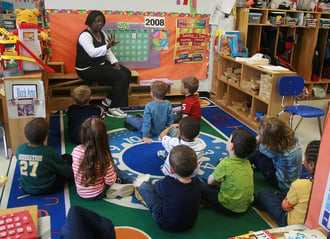As society continues to evolve, so do the complexities and challenges facing our younger generations. More than ever, there's an urgent need to equip our children with the right knowledge, skills, and attitudes to help them navigate the world safely and responsibly. This need underscores the critical importance of starting prevention education at a young age - particularly, at the elementary school level.

Understanding Prevention Education
Prevention education encompasses a wide range of topics, from physical safety, and drug and alcohol abuse, to mental health, and cyber threats. These topics are traditionally broached during middle or high school years when children are presumably old enough to understand them. However, research and evidence show that introducing these subjects at an earlier age, while kids are in elementary school, could be more effective and impactful.
Why Start Early?
Early Foundation: Elementary schools provide an environment where children form their basic understanding of the world. This period is crucial in developing their perspectives, attitudes, and behaviors. By introducing prevention education early, we provide kids with a foundation of understanding that they can build upon as they grow older.
Age-Appropriate Learning: Prevention education in elementary school isn't about overwhelming children with difficult concepts, but rather about presenting these topics in an age-appropriate and engaging manner. For example, children can learn about online safety when they start using the internet, or about healthy relationships through friendship dynamics.
Skill Development: Prevention education is not only about providing information, but it also develops skills. It encourages critical thinking, decision-making abilities, self-awareness, and resilience. Starting early allows children more time to develop, practice, and internalize these skills.
Early Intervention: The sooner children are educated about potential risks and issues, the better prepared they are to handle them or seek help if needed. It also provides early intervention opportunities for kids who might already be experiencing some of these issues.
The Role of Elementary Schools
Elementary schools play a critical role in delivering prevention education. They are a common space where all children can be reached consistently, ensuring that no child is left behind. Teachers and school staff, with the right training, can spot early signs of any issues and provide appropriate interventions.
Incorporating prevention education into the curriculum ensures children receive this learning as part of their fundamental education. Schools also offer a safe and supportive environment where children can discuss these issues, ask questions, and express their thoughts and feelings.
Prevention education is an investment in our children's future. Starting this education in elementary school equips children with the knowledge and skills they need to handle life's challenges effectively. It enables them to make informed decisions, fosters a healthy self-image, and promotes a safer, healthier community.
Elementary schools play an instrumental role in this endeavor. They offer a conducive learning environment, a sense of community, and consistent access to all children. It's time we recognized prevention education not as an 'add-on' but as a necessary component of a comprehensive, future-focused education. Let's make a collective commitment to start early and empower our children to grow into responsible and resilient individuals.
